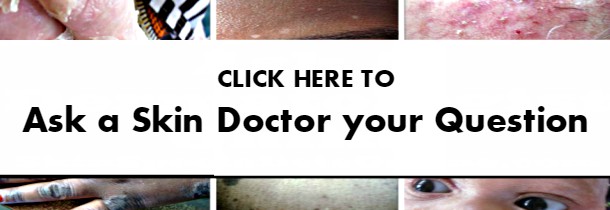
Dear Doctor
I drive a truck and at the end of the day I itch in my genital area so bad I have to use a brush. There seems to be rashy spots and they itch like crazy.
Dear Doctor
Attached is a cropped (only the pertinent area is shown) picture of the extreme case of jock itch I have been dealing with – I really, really don’t want to have to go to a doctor – although I have tried about all drug store treatment, there are some others I’d like to try first including Sudocream and Terrasil.
I am even willing to try an extreme treatment that others claim to have had success with and since I have extremely high tolerance for pain I can take it (using bleach on the affected area) – my problem is the extreme itching is insane, after scratching, I have to use alcohol to burn out the itch.
Are there any medications even extreme I can try before going to the doctor and having this section excised? THANKS
Dear Patients
I can barely discern anything from your photos to give you a definitive answer. I therefore suggest you both send us clear and focused photos of the affected areas so that I can tell you whether you are suffering from jock itch or other conditions which cause itching in the genital area.
In the meantime I will discuss the risk factors for jock itch and how it can be treated and prevented.
Tinea Cruris or Jock Itch Risk Factors and Prevention
Risk factors for developing tinea cruris or jock itch include:
1. Wearing non-absorbent materials
Wearing clothing made from non-absorbent materials that trap sweat next to the skin is a risk factor for developing this fungal infection of the groin. These non-absorbent materials and excessive sweating can contribute to the worsening of symptoms in persons who work in hot places like truck cabins and kitchens.
Jock itch can therefore be prevented by wearing underwear made of absorbent material like cotton.
2. Untreated fungal infections
Having untreated fungal infections on the body like on the hands, feet and nails is another risk factor for developing tinea cruris.
Tinea cruris can therefore be prevented by ensuring all fungal infections on your body are treated even if they are not disturbing you in any way.
3. Wearing Dirty Clothing
Not washing clothes properly is another risk factor since it enables a person to reinfect themselves by wearing their own infected clothes.
Undergarments should therefore be boiled to reduce the risk of reinfecting yourself.
4. Sharing Clothes
Sharing clothes and wearing contaminated clothing of persons with Tinea cruris is another jock itch risk factor.
Jock itch prevention therefore includes not sharing clothing and especially undergarments with other people.
5. Being overweight
Being overweight is another risk factor for developing tinea cruris due to the increased sweating in the skin folds.
T. cruris can thus be prevented by losing excess body weight. This is best down by combining regular exercise with reduced portion sizes.
6. Medical conditions
Medical conditions that increase a person’s risk for developing jock itch include:
a. Poorly controlled diabetes mellitus. This risk can be reduced by taking diabetes medications faithfully, following the diabetic diet and exercising regularly.
b. Immunosuppression or patients whose immune system is not functioning normally due to suppression by medications like prednisone and chemotherapy or diseases like HIV/AIDS.
Jock Itch Treatment
The treatment of jock itch includes:
1. Applying Antifungal Creams
Antifungal creams that are applied on the skin to treat jock itch or T. cruris include 1% Clotrimazole cream (Lotrimin), Terbinafine (Lamisil), Miconazole (Monistat-Derm) and ketoconazole (Nizoral).
Patients with excessive itching can mix 1% Clotrimazole cream with 1% Hydrocortisone cream and apply it to the affected area twice a day for 1 week. Both these medications area available over the counter.
Antifungal powders like Miconazole powder can also be used by those who live in hot and humid climates or those who work in hot places like trucks and kitchens since they absorb the sweat and control the fungi.
2. Taking Antifungal Tablets
Antifungal medications that are taken by mouth to treat jock itch or T. cruris include:
- Ketoconazole
- Griseofulvin



